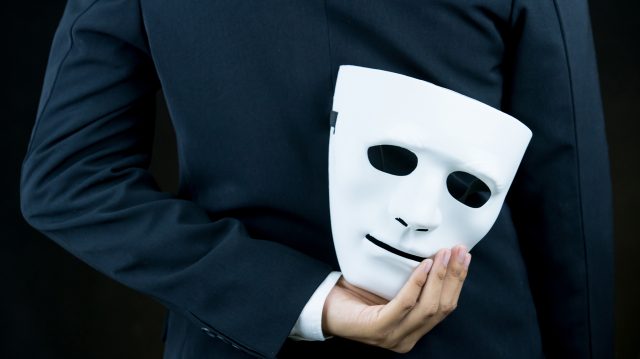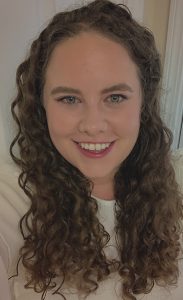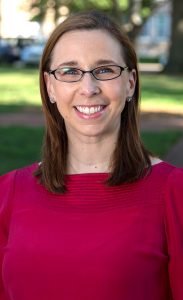
UM psychology researchers have been studying the role of dark personality traits – narcissism, Machiavellianism, psychopathy and sadism – in predicting responses to the pandemic. Their results have yielded insights on varying perceptions of COVID-19 threat, emergency beliefs, and positive and negative responses to the virus. Adobe Stock photo
OXFORD, Miss. – The COVID-19 pandemic has triggered a global upheaval, with lives lost, vanished jobs, social instability and other detrimental effects – and some people might find a bit of enjoyment in all the disruption.
That is one conclusion from a recent study at the University of Mississippi, where psychology researchers assessed the role of dark personality traits in predicting responses to the pandemic. They studied a group of Americans on the Dark Tetrad personality traits – narcissism, Machiavellianism, psychopathy and sadism – as well as perceptions of COVID-19 threat, emergency beliefs, and positive and negative responses to the virus.
With the pandemic more than a year old, disease and safety protocols such as mask wearing and social distancing continue to affect daily life. Research on personality and responses to COVID-19 is essential, both for addressing differences in how individuals respond to the pandemic and for understanding how personality traits predict how people feel, think and act when faced with a novel environment, the researchers said.
“Some of the main findings for the study were that we did see some differences in how people with these traits have operated during the pandemic,” said Lauren Jordan, a graduate instructor from Baton Rouge, Louisiana, and one of the study’s authors. “While those high in narcissism and Machiavellianism felt unstable during the pandemic, sadists especially seemed to be thriving.”
Sadistic people, who tend to be cruel toward others for pleasure or dominance, may experience more positive emotions in situations such as the pandemic because all the turmoil appears to negatively affect the quality of people’s daily lives.
“This could reflect the idea that while narcissists and Machiavellians work within the system and around people to accomplish their goals, those high in psychopathy and sadism tend to be more antisocial and work within their own systems,” said Jordan, who is pursuing her Ph.D. in experimental psychology.
The study’s results suggest that dark personality traits may be separated in part by their relationship to social stability.
“My favorite finding is that individuals scoring higher in Machiavellianism and narcissism report feeling more negativity and perceive that COVID-19 is threatening to a sense of stability in the world,” said Carrie Smith, UM assistant professor of psychology and one of the study’s authors. “I think this is very interesting.
“We interpreted this as these people needing the world to be predictable and consistent for them to be most effective – narcissists are great in their domain; Machiavellians know how to achieve their ends in their domain.
“When that gets upended, and these people are unable to interact with people in known ways or unable to engage in particular behaviors, I imagine that it is profoundly unpleasant. With people scoring high in psychopathy, they are also experiencing less positive affect, which I think is related. The world has changed for them, too, and they have less opportunity to be impulsive and do what they want.”
Besides Jordan, joining Smith on the study was Ben Hardin, a senior psychology major from Booneville.
The researchers noted a positive finding: most people reported that they are following basic social distancing and other recommended precautions to combat the health crisis.
The study also found some interesting pandemic-related behaviors among the different personalities.
“Since almost all of our participants reported that they had been following protocols and social distancing, we could not analyze whether there was any relationship between dark personality traits and compliance with health recommendations,” Hardin said. “We did find some interesting relationships with other behavioral outcomes, though.
“For instance, those who were higher in narcissism were more likely to report that they had engaged in volunteering activities to help those affected by COVID-19.”
The study found that Machiavellianism predicted a greater fear of being infected with COVID-19, and the dark personalities showed some predictive ability in explaining some pandemic-related behaviors, such as more frequent cleaning, but not others, such as social distancing. People higher in narcissism and psychopathy reported being less likely to clean regularly touched surfaces in their home, which could reflect their tendency to be impulsive and devalue the future consequences of their actions.
Shining a Light on Dark Personalities
Two Canadian psychologists first introduced the term Dark Triad in 2002 to describe three overlapping personalities: narcissism, characterized by self-aggrandizement and desire for attention; Machiavellianism, characterized by a willingness to manipulate others; and psychopathy, characterized by impulsivity and callousness. In 2009, sadism was added to the threesome, creating the Dark Tetrad.
While these dark personalities are often assumed to be problematic, contexts exist where a dark personality might have its benefits, such as in political leaders or business executives, Smith said.
“In addition, I think some people may assume that some of their traits – such as a lack of empathy – make them immune to threats to well-being, like the pandemic,” she said. “Similarly, I don’t think that is true, and our findings suggest that people with dark personalities are not unaffected by the upheaval caused by the pandemic.”
Smith was already studying dark personalities when the pandemic struck in early 2020. She has continued that work, but with a different approach.
Since the laboratory was already exploring dark personality, the group started asking questions about how people who have a dark personality – not necessarily rule-followers or concerned about the welfare of others – may be reacting in a time of national unity and sacrifice, but who also are being asked to limit interaction and follow safety protocols.
To avoid studying Ole Miss students, the group recruited a national sample of people from around the country. The 402 participants – from 43 states and the District of Columbia – filled out a series of questionnaires concerning their personalities and their thoughts, feelings and behaviors in response to the pandemic.
All study procedures were approved by the UM Institutional Review Board, and all involved gave consent before participating.
“I think we were inspired by the initial response to the pandemic,” Jordan said. “So many people were anxious and fearful and tasked with making difficult decisions about shutting down and visiting local businesses, about how to work and about handling child care.
“We saw people put their own health on the line to help others, but we also saw pictures of grocery stores completely empty and everyone hoarding toilet paper. We wondered if personality, and Dark Tetrad traits in particular, could explain some differences in these behaviors.”
Enhancing Student Opportunities, Scientific Collaborations
The published paper was a first for Hardin, who expects to graduate in May and pursue a doctorate in psychology.
“It’s an incredible opportunity to have your work published as an undergraduate,” he said. “Not many students are fortunate enough to have a mentor like Dr. Smith, who will take their ideas seriously, give them critical feedback and push them to really hone their skills, so of course I’m extremely grateful to be in a lab where undergrads get these kinds of opportunities.
“Having something that I worked on published has been incredibly validating and given me a lot of confidence in my ability to pursue a scientific career doing this kind of research.”
Smith, who joined the Ole Miss faculty in 2010, said collaborations with undergraduate and graduate students offer different viewpoints. Also, the science is enhanced by approaching questions and problems from different angles.
“With graduate and undergraduate students, they have a lot to offer because they have just taken or are currently taking classes where they are exposed to the most up-to-date findings and theories and methods,” she said.
“I think it is also important for students to get real experience with what it is like to be an academic as they think about their careers moving forward. Publishing is a large part of the life of an academic, so getting experience with that is valuable so they can see if this is something they like doing and are good at.”
Learn more about the study, titled “Is the COVID-19 pandemic even darker for some? Examining dark personality and affective, cognitive, and behavioral responses to the COVID-19 pandemic,” at the National Center for Biotechnology Information’s website.


